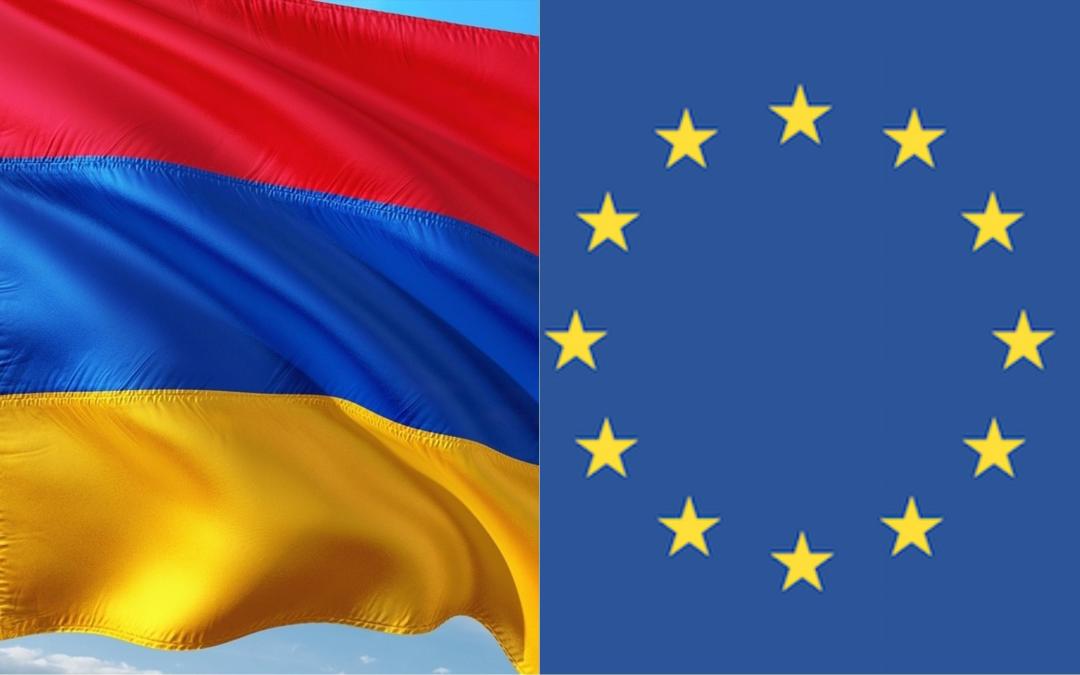
EU and Armenia Enter Stronger Partnership as Visa Dialogue Begins

European Commission Vice-President Margaritis Schinas described the launch of the visa liberalization dialogue with Armenia as a significant milestone in Armenia-EU relations. Schinas visited Armenia on September 9, 2024, to formally initiate this dialogue. In an interview with Armenpress, he emphasized that this process is part of a broader set of EU initiatives to support Armenia. He also highlighted that the EU-Armenia partnership is currently at its strongest, praising the relationship for its “quality and depth.”
When asked to summarize the outcomes of his meetings in Armenia, European Commission Vice-President Margaritis Schinas expressed his satisfaction with the opportunity to meet the country’s political leadership, including the President, PM, and Foreign Minister. Most notably, he highlighted the launch of the visa liberalization process with Deputy PM Grigoryan as a significant step in EU-Armenia relations. Schinas emphasized that this initiative is part of a broader set of EU programs designed to support Armenia. These efforts include a €270 million investment plan, in collaboration with the United States, aimed at boosting economic growth and resilience. He also pointed to the EU's ongoing support for Armenia's peace and security, including an EU mission assisting with border management and providing backing to Armenia's Armed Forces through the European Peace Facility. Schinas stressed that the visa liberalization initiative is a key achievement, marking the start of a process that he hopes will soon allow Armenians to travel freely to Europe for short stays without needing a visa.
Reflecting on the productivity of the meetings, Schinas noted that the timing of his visit was particularly appropriate, as it followed the EU Foreign Affairs Ministers’ Council in July, which set these initiatives in motion. He emphasized the importance of capitalizing on political momentum and reiterated that the visa liberalization process and new support for the Armenian Armed Forces are crucial milestones. He also commended Armenia for emerging as a stabilizing force in a geopolitically volatile region, with the EU committed to standing by Armenia as it continues to develop.
When asked to elaborate on the visa liberalization process, Schinas explained that it is only the beginning of a path that he hopes will lead to visa-free travel for Armenians to the EU. He recalled that EU Member States authorized the process in July, marking a significant achievement. The next step involves addressing key issues such as the security of travel documents, combating corruption, and ensuring the rule of law. Once these technical matters are resolved, the EU will return to its Member States for final approval. However, Schinas emphasized that this first step is crucial for reaching the ultimate goal.
Regarding other EU initiatives to support Armenia’s security and resilience, Schinas underscored that the EU-Armenia partnership is at its strongest. He explained that this partnership rests on three pillars: investment, peace and security, and people-to-people connections. He stressed that these three elements must progress together, as economic growth cannot occur without peace, and meaningful personal exchanges require a stable economy and security. Schinas added that the EU’s various initiatives aim to strengthen all three pillars simultaneously, reflecting Armenia’s responsible stance and commitment to reform and stability.
On the topic of future high-level visits, Schinas noted that another European Commission Vice-President, Valdis Dombrovskis, had visited Armenia just a few months prior. He emphasized that having two Vice Presidents visit Armenia within such a short period highlights the importance of EU-Armenia relations. He expects that more high-level visits will follow after the new political cycle begins in Brussels later in the year, with future leaders continuing to advance the positive agenda between the two partners.
Read also: Armenian PM and EU Commissioner Discuss Expanded Cooperation and Visa Liberalization
See Also


Mirzoyan Meets US Deputy Assistant Secretary Joshua Huck

Azerbaijani President Holds Talks with UAE and German Business Delegations on Economic Cooperation

Grigoryan Confirms Armenia’s Readiness to Dissolve OSCE Minsk Group Upon Peace Treaty Signing

Azerbaijani Official Warns of Ecological Risks to Caspian Sea, Similar to Lake Urmia and Aral Sea

